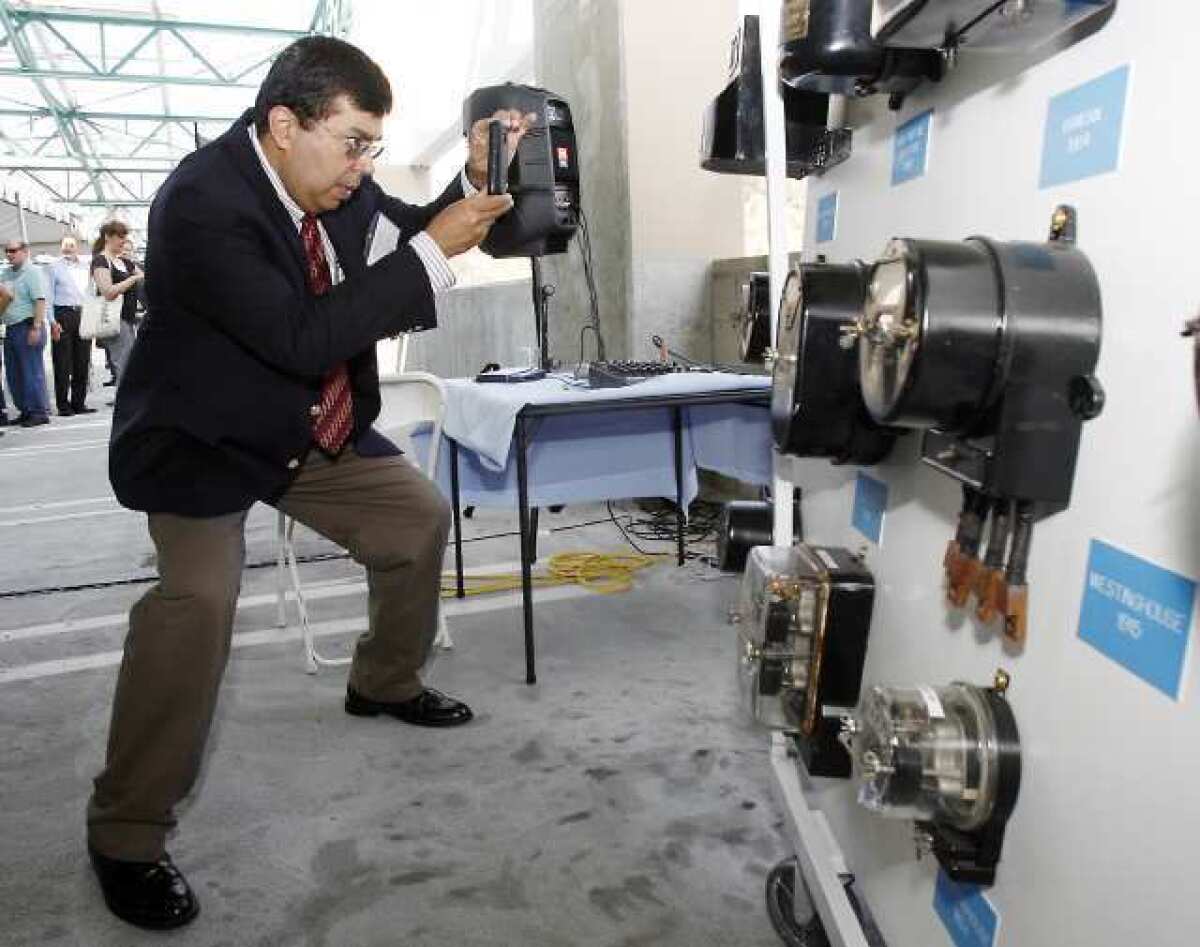Glendale’s smart grid project is out of money

As Glendale nears the end of its $70-million smart grid project, officials say they’re out of money and need more time.
City officials said this week they have asked the U.S. Department of Energy for an extension to the March 2013 deadline to finish installing new technology to make the smart meter utility system more efficient. Hitting the deadline was a condition of receiving $20 million in federal stimulus funding for the project.
Utility officials had expected to spend $10 million on smart grid improvements this fiscal year, which started July 1, but as part of a stripped-down budget with minimal capital improvements, the City Council approved only $450,000 for that project, officials said at a recent Glendale Water & Power Commission meeting.
“Not once have I heard that the smart grid program would be decreased so dramatically in the last year,” said Commissioner Terry Chan, adding that she was surprised by and concerned about the cutbacks.
The utility may be able to restore the smart grid budget if either an electricity rate increase or tens of millions worth of bonds are approved.
Glendale Water & Power was the first utility in the nation to get a chunk of the billions of dollars in stimulus funding that the federal government set aside for smart grid initiatives.
One of the few expenditures planned is an update to a storage network that Glendale Water & Power needs to bill customers through the smart grid network, said Craig Kuennen, the utility’s business transformation and marketing administrator.
City hall critic Herbert Molano, who has long railed against the smart grid project, said the city should not have been on the cutting edge when it came to implementing this new technology.
“Being the first to do something, you’re just opening yourself up for trouble,” he said.
The overall smart grid includes social media applications — such as tracking electricity and water use via smart phones — digital rebates and other programs, but it was the so-called smart meters that sparked controversy.
A small but loud group of residential customers opposed the digital meters amid fears that the radio frequency waves they generate were making them sick — claims city officials repeatedly refuted.
Glendale Water & Power officials have spent about $51 million to replace traditional analog meters with smart meters and implement the back-end system. About $30 million is from Glendale, $1 million from the state and the rest from the federal grant.
Some of the infrastructure needed to complete the smart grid has already been purchased, but the utility can’t afford to set it up, angering Glendale Water & Power commissioners.
“I’m very concerned, I have to say, when I hear things like what you said which is, you know: ‘We bought this, but we don’t have anyone to install it,’” said commission President Zanku Armenian at a meeting this week. “This stuff is aging as we speak and we’re not getting any benefit after having spent the money to purchase things.”
But the Department of Energy has offered other utilities an extension, officials said.
Keri Fulton, a Department of Energy spokeswoman, said in an email this week that the project must be completed by September 2015 and federal officials are reviewing Glendale’s extension request. Representatives from the agency plan to visit Glendale later this year.
---